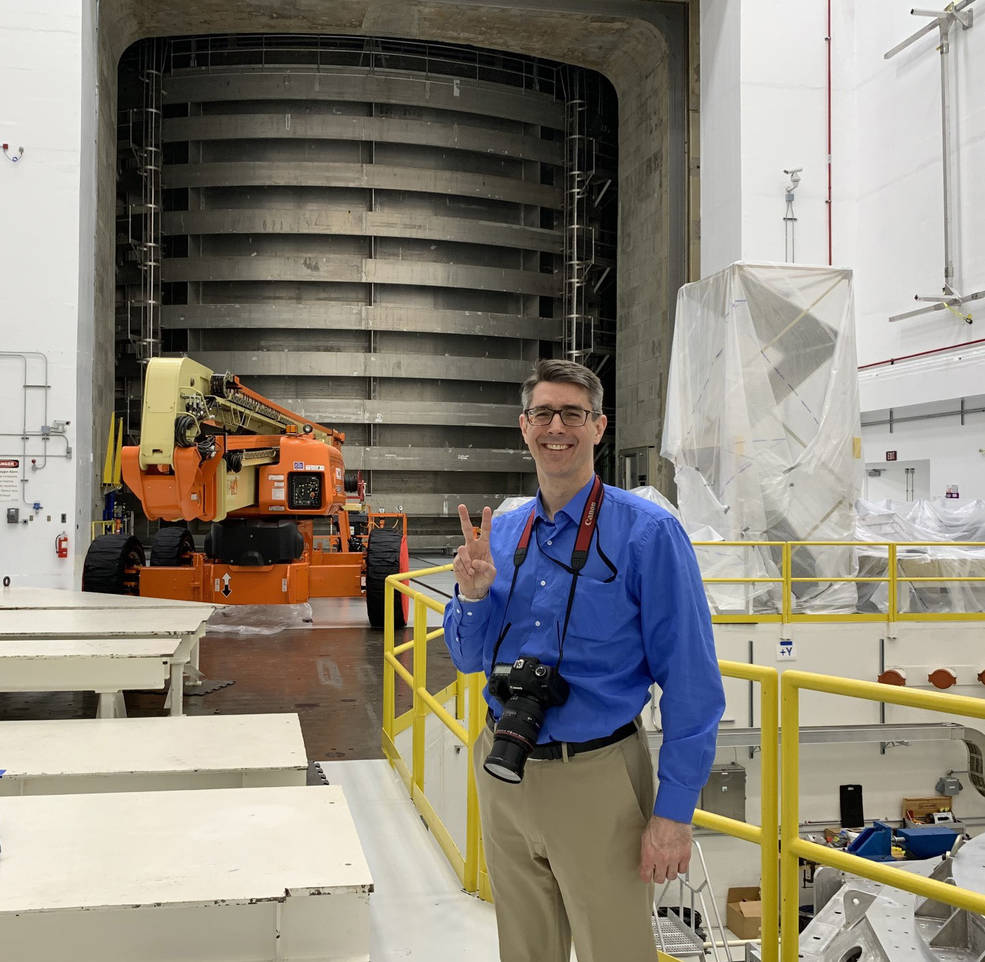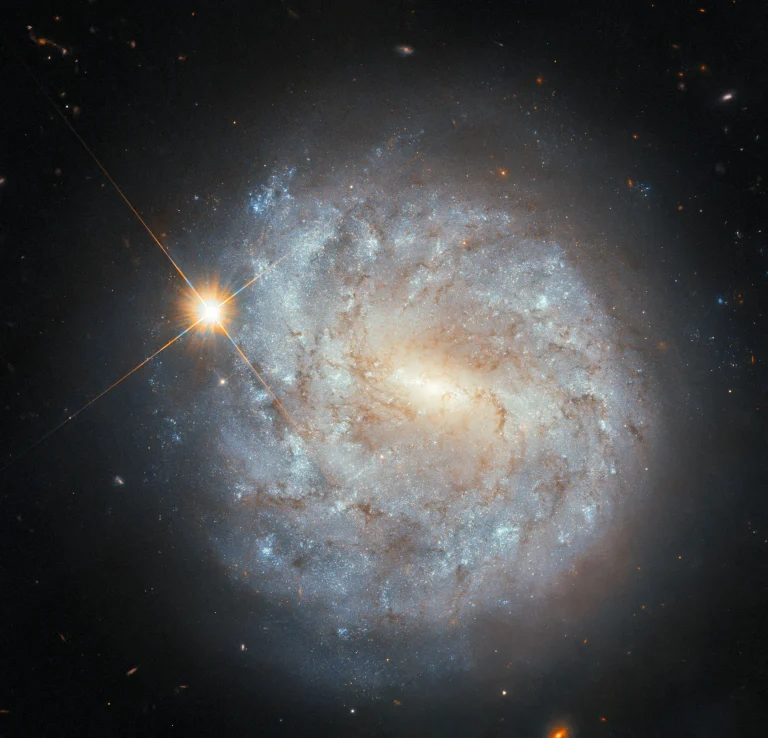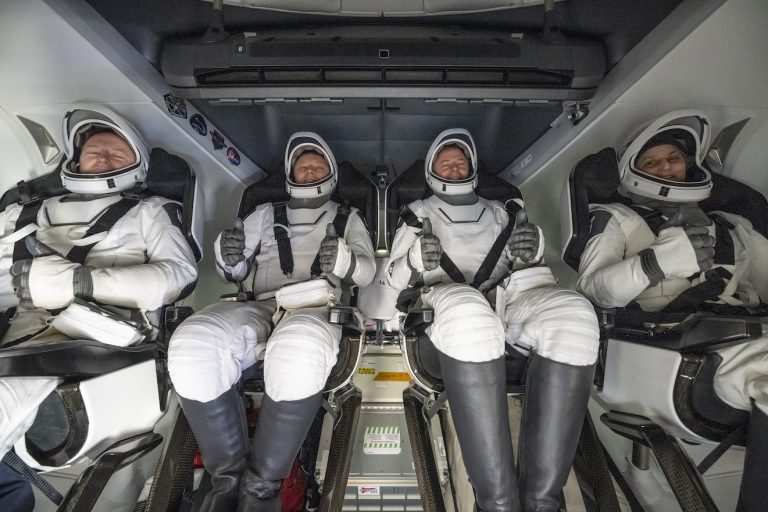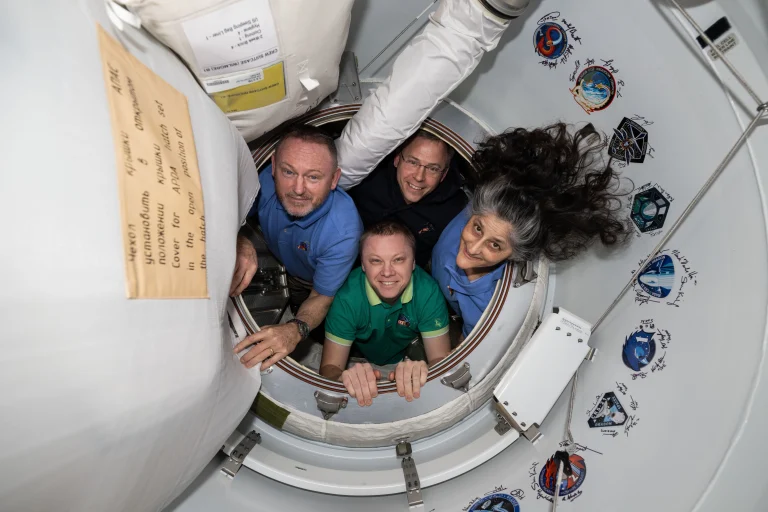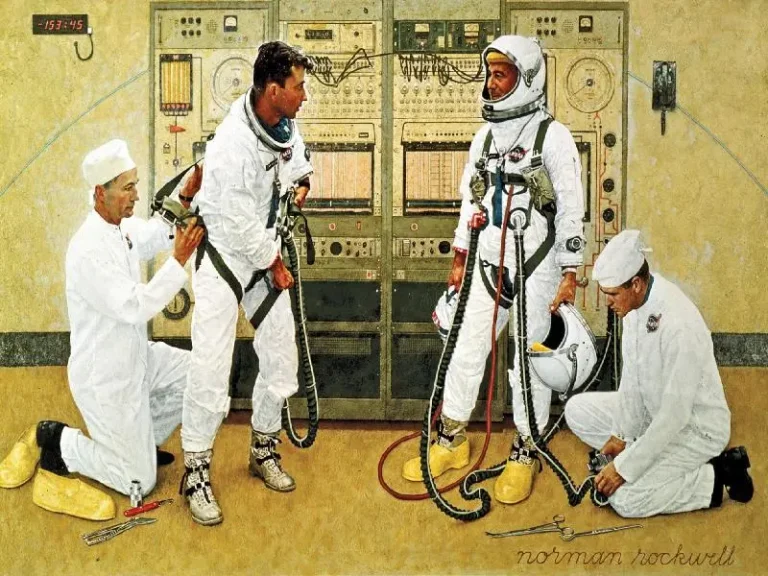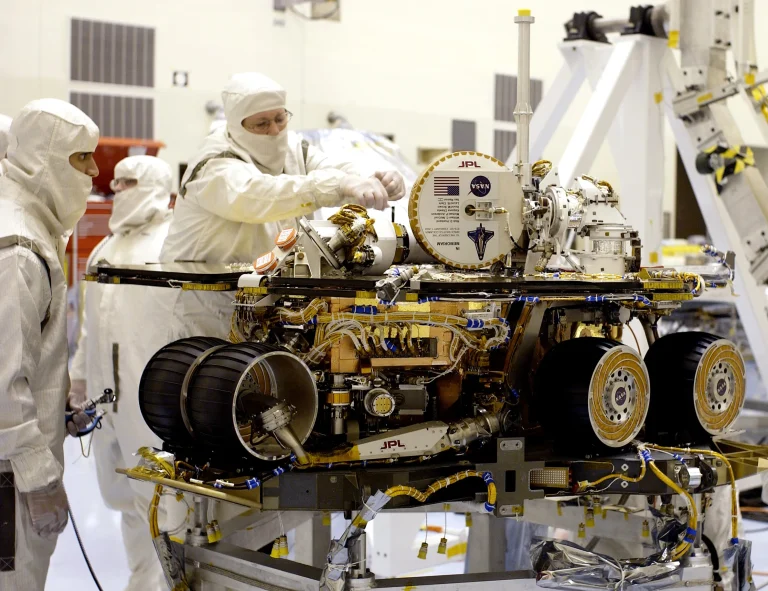Chas Hoff, visited the Space Environments Facility in 2019 with a group of safety and mission assurance experts prior to testing of the Orion spacecraft.
Credits: NASA
2019年于2019年与一组安全和任务保证专家一起参观了空间环境设施,随后对猎户座航天器进行了测试。
影像来源:NASA
When Chas Hoff’s children started asking questions about his Native American heritage, he realized he didn’t have many answers.
当查斯·霍夫的孩子们开始询问他的印第安血统时,他意识到自己没有很多答案。
Hoff, a public affairs specialist at the NASA Safety Center in Cleveland, grew up in Dowagiac, Michigan, a center of Potawatomi culture near the Indiana border. And while he knew that he had family connections to the Potawatomi people, he never asked his relatives for more information.
霍夫是NASA克利夫兰安全中心的公共事务专家,在密歇根州的多瓦吉亚克长大,那里靠近印第安纳州边境的波塔瓦托米文化中心。虽然他知道自己与波塔瓦托米人有亲属关系,但他从未向亲属询问更多信息。
“Now I’m trying to patch together the stories and documents of my great grandmother, but like a lot of Native American history, it’s complicated,” he said. “After the forcible removal of the Potawatomi people to lands in Kansas, many ancestors would marry people from other cultures and give up their names and religions, so you lose clues.”
“现在我正试图拼凑我曾祖母的故事和文件,但就像许多美洲原住民的历史一样,这很复杂。””他说。 “在波塔瓦托米人被强行迁移到堪萨斯州后,许多祖先会与来自其他文化的人结婚,并放弃他们的名字和宗教信仰,因此你失去了线索。”
After Hoff graduated from Grand Valley State University with a degree in film/video, and advertising/public relations, he landed at the U.S. Department of Defense (DoD). He traveled for the next 20 years creating films, editing programs, and serving as a public affairs officer in support of military families around the globe.
霍夫毕业于大峡谷州立大学,获得电影/视频和广告/公关学位后,进入美国国防部(DoD)。在接下来的20年里,他四处旅行,创作电影、编辑节目,并担任公共事务官员,为全球各地的军人家庭提供支持。
World travel and working for the DoD exposed him to an extremely diverse workforce, how people live around the world, and how good we have it in the United States. But he also acknowledges that we can do better and create more opportunity for diverse communities, especially at NASA.
环球旅行和为国防部工作让他接触到了极其多样化的劳动力,世界各地的人们如何生活,以及我们在美国的生活有多美好。但他也承认,我们可以做得更好,为多元化社区创造更多机会,尤其是在NASA。
“NASA has a highly educated workforce that has had access to high quality education and opportunities,” says Hoff. “But those opportunities are not always available to children in Native American communities where their rural schools don’t have the tools or resources to pull kids into STEM careers.”
“NASA拥有受过高等教育的工作人员,他们有机会接受高质量的教育。”霍夫说。“但这些机会并不总是为印第安人社区的孩子提供的,因为他们的农村学校没有工具或资源让孩子们从事STEM职业。”
He also believes that NASA outreach efforts sometimes miss these communities because of their remote locations. The additional challenge is that Native Americans are a tightly knit people and children are reluctant to leave their families, so they often don’t choose careers in far-flung cities, according to Hoff.
他还认为,NASA的拓展工作有时会因为这些社区的偏远位置而错过它们。霍夫说,另一个挑战是,美国原住民是一个紧密团结的民族,孩子们不愿离开他们的家庭,所以他们通常不会选择在遥远的城市工作。
“I’m a cyclist and I’ve ridden across Ohio and other states, and most of it is rural,” he says. “It’s a part of America that many people forget.”
“我是一个骑自行车的人,我曾骑车穿过俄亥俄州和其他州,大部分地方都是农村。”他说。“这是美国的一部分,很多人都忘记了。”
When Hoff joined the Advisory Group for Native Americans at NASA Glenn, he was moved by the mission to create connections with American Indian students and communities.
当霍夫加入NASA格伦分校的美国原住民咨询小组时,他被与美国印第安学生和社区建立联系的使命所感动。
“There is so much talent out there,” he says. “I am hopeful that as we move toward a more remote or hybrid work model, Native American students can have a more level-playing field to get internships and other opportunities.”
“那里有太多的人才。”他说。 “我希望随着我们转向更偏远或混合的工作模式,美洲原住民学生可以有一个更公平的竞争环境来获得实习和其他机会。”
#NAHM

